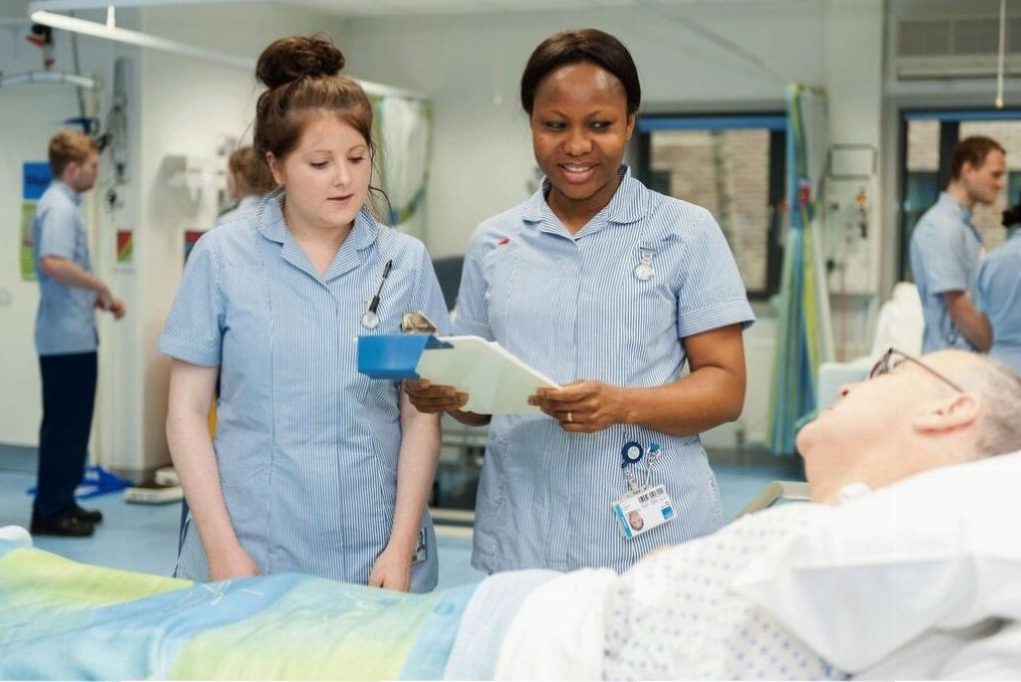Kingston University nursing students and staff have said the reintroduction of living grants is a “step in the right direction” but more should be done to combat issues that students face on their degree.
The criticism comes as a response to the Government announcing that they will be offering new and existing nursing, midwifery and allied health degree students a £5,000 grant to help with living costs each year, which will not need to be paid back starting from September 2020.
Students studying courses in mental health nursing, learning disability, and other specialist degrees, will be eligible to receive extra payments of up to £4,000 due to shortages of qualified staff in the field.
Dr Julia Gale, head of nursing at Kingston University, said: “The grants are a step in the right direction as they enable students not to worry about fitting work around their studies.
It means they can enjoy their studies and have an easier transition to becoming qualified. But, it doesn’t take away the fact that they are left with a student loan at the end of it.”
The grant comes after the £9,000 pre-paid tuition fees and the NHS bursary scheme worth £4,191 for all nursing students were abolished in 2017.
According to the Royal College of Nursing, nursing degree applications fell by 13,000 after the cuts were implemented in June 2016 to February 2019.
Katie Needham, a final year nursing student, said: “I think it’s really good that they brought it back because we’re short of nurses.”
Students who started their course in 2017, however, will not benefit from the grant.
Needham said: “Even if it doesn’t benefit me as a student, it will benefit me as a registered nurse because I’ll have more nurses to work with.
“I would love to have been given an extra five grand every year and not have to pay it back, but we can’t have everything. I’m very blessed to be in the position that I can go to university in the first place.”
She added: “What a lot of student nurses want is to be paid for placement hours. They’re working as part of the hospital team but get nothing for it. I think that’s bigger than the grant for a lot of people – they feel undervalued.”
On average, newly qualified nurses receive an annual salary of only £24,214. Many students and nurses are mature, have families, and work part-time meaning they cannot afford to work without pay.
KU graduate, Bria Browne, said she had a difficult transition becoming a registered nurse last year, which has caused her to reconsider her career path.
“Not much has changed. I don’t think it’s going to improve a lot at all in regard to future nurses because we have been struggling for a long time.
“This is one of the reasons why many nurses leave the profession because they don’t feel supported and are not paid enough, or at all.”
Browne also believes that student nurses should be provided with extra support while at work.
“The performance of the nurses and therefore, the NHS, depends on the support that a nurse is getting,” she said.
Kingston’s nursing department released a promotional video in collaboration with UCAS and the Department of Health and Social Care of interviews from current students speaking about the benefits of the grant to attract prospective students.
Dr Gale said: “For me, the key is getting the message out that this funding will be available because I still don’t believe that many of the public are aware of that yet.”
Others question how much the grants will help combat the wider nursing workforce crisis.
Mike Adams, Royal College of Nursing director for England, said: “We will only see safe and effective care for all patients once all nursing vacancies are filled. This is why all financial barriers to studying nursing at degree level must be removed.”

